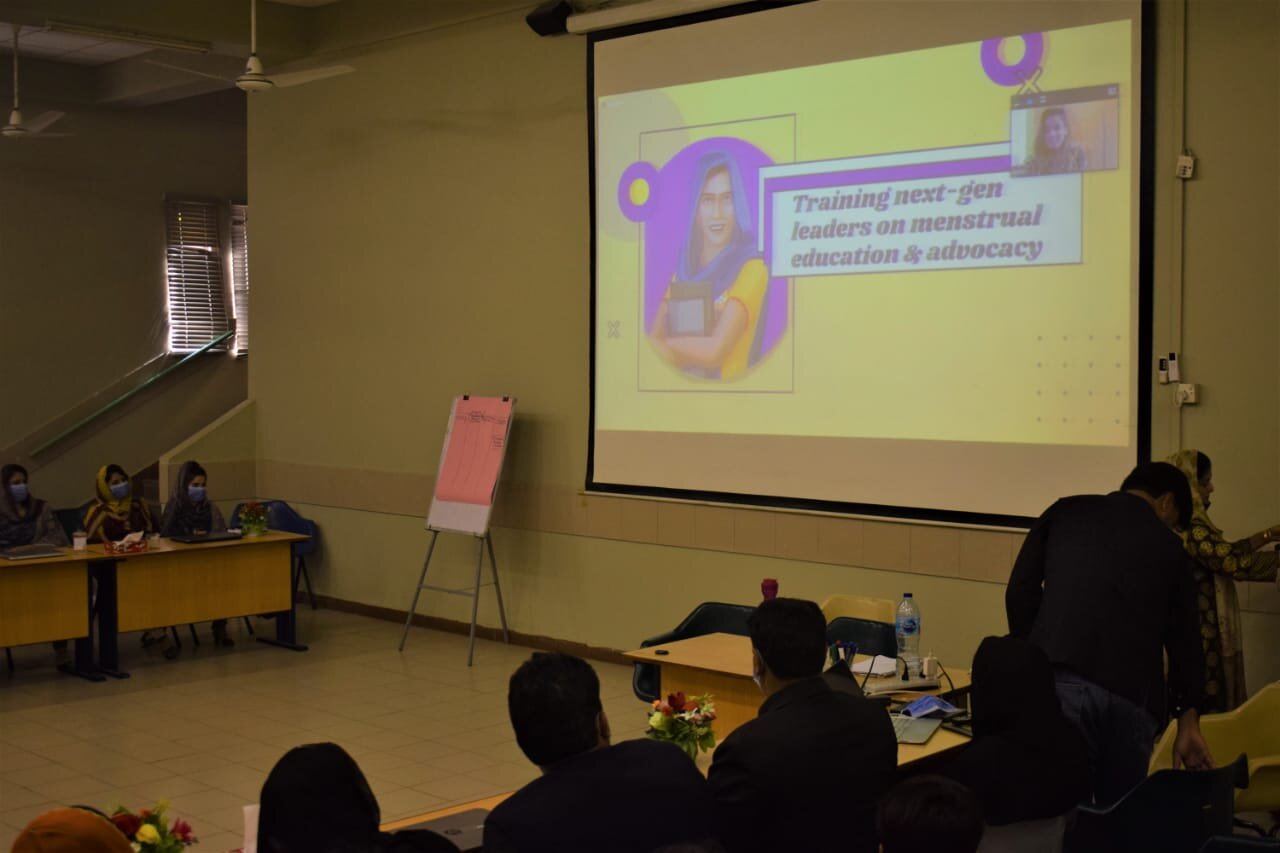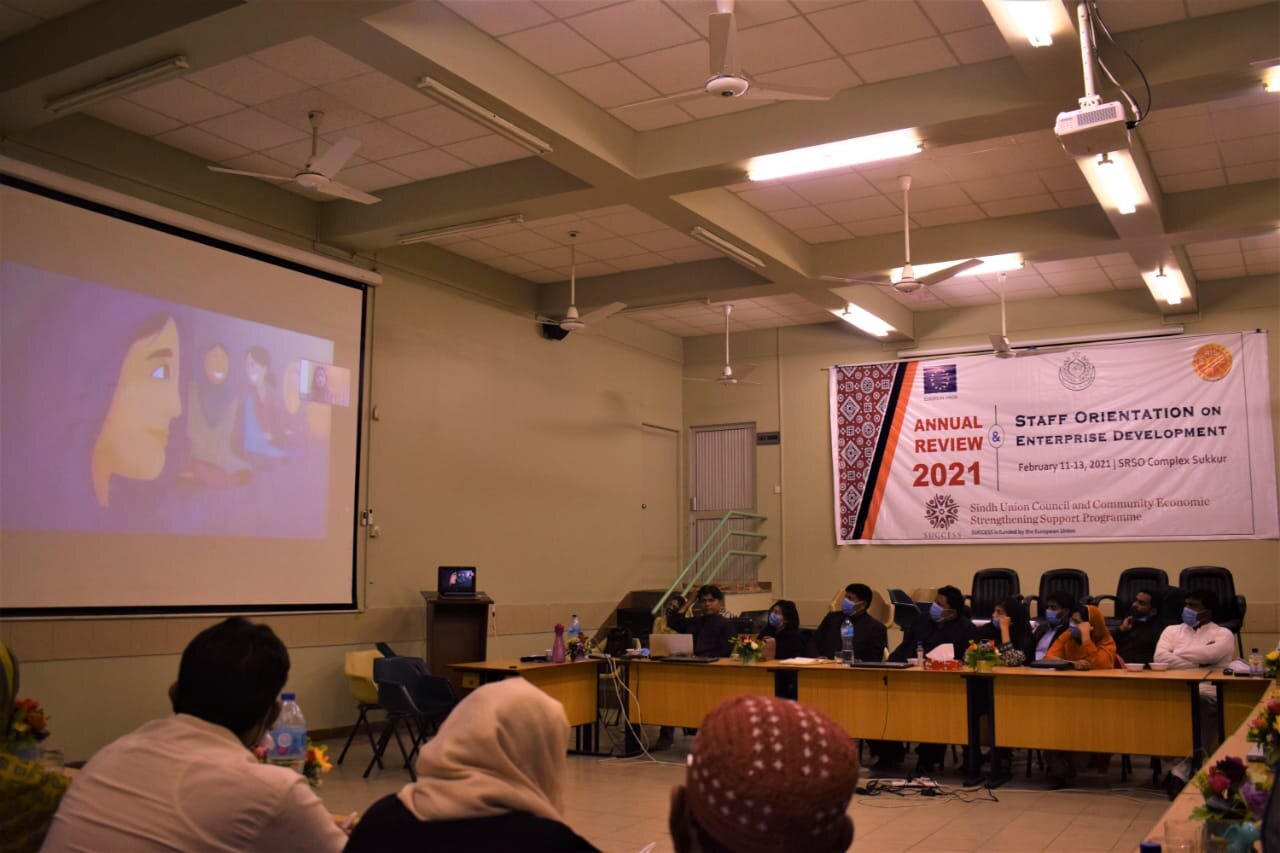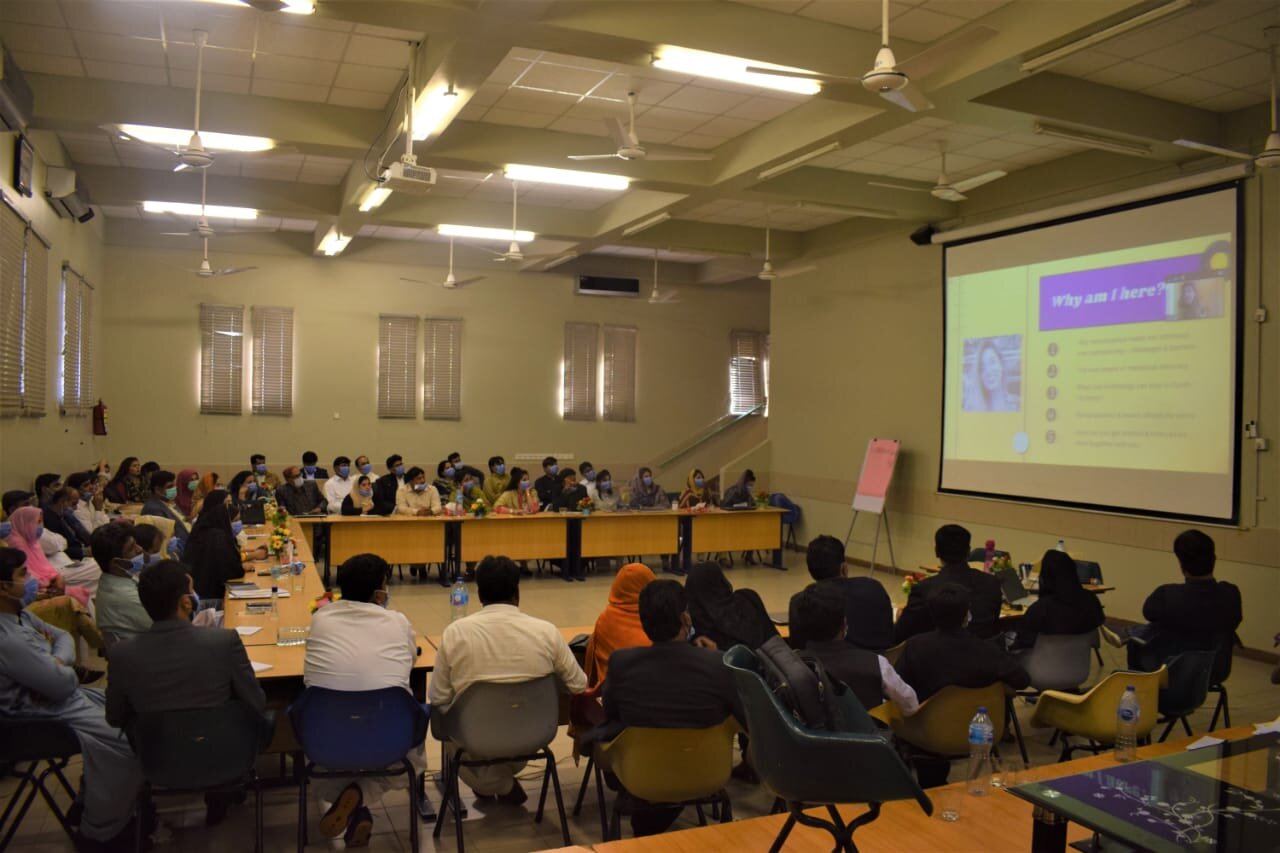Training the SRSO team on menstrual advocacy
During the Annual Programme Retreat organized by the Sindh Rural Support Organization (SRSO), we connected with their field staff virtually to conduct an online session with them.
We are much obliged to Ms. Samina Barkat Ali, SRSO's Gender Focal Person, and Mr. Jamal Mustafa Shoro, Team Lead SUCCESS at SRSO, for inviting us to meet their employees. We presented our Femtech concept and goal, which is to educate women about reproductive health issues using the power and scale of technology, especially Artificial Intelligence. We demonstrated how we may collaborate on issues ranging from menstrual advocacy to period poverty.
We also had a meditation activity that included a narrative about a young girl who had just got her first period. Then, we talked about the barriers to the effective practice of menstrual hygiene that we had noticed and observed. After that, we had an icebreaker activity where we asked some questions about menstruation.
We introduced Raaji, our animated character and AI chatbot that is capable of interacting in Urdu and English. We expressed our desire to adapt it to Sindhi for the rural communities of Sindh.
We also displayed an animated Raaji story to the staff. Following that, we discussed menstrual waste disposal and sustainability.
After that, we highlighted a case study from Karachi of Mr. Zakir, a male football coach who partnered with us and became one of our male allies in educating football-playing girls about menstrual hygiene.
When we discussed our pilot findings at Thardeep Rural Development Programme (TRDP) and SRSO, Mr. Jamal Shoro expressed an interest in working to raise awareness and prospects for low-cost menstrual-related product enterprises. The staff, both male and female, also shared their thoughts and experiences. A female staff member shared, “Males should also get this education because my father always asked us to offer prayers and Holy book regularly but during menstruation, we had to lie that we had offered the prayer.”
Some female staff members spoke out about their experiences with rural communities, stating that the majority of rural women use cloth for the absorption of menstrual blood. We were pleased to see that the male staff also joined in and highlighted that, like adolescent males, girls also go through changes during puberty, and they agreed with our stance on menstrual education.
The most intriguing and encouraging aspect was that the attendees included community leaders that have been raising awareness about a range of socio-cultural and health issues in rural areas. These community leaders, according to the staff, can be agents of promoting menstrual awareness.
We are thrilled to see that organizations like SRSO are making significant progress in raising awareness and changing mindsets in rural areas. We hope to extend our work to them in the future.
.png)


